- About Us
- Information
-

The Author ensures that the research has been conducted responsibly and ethically with adherence to all relevant regulations. read more..
- For Authors
- For Reviewer
- Manuscript Guidelines
- Membership
- Publication Ethics
-
- Journals
- Reprints
- e-Books
- Videos
- Policies
- Contact Us
 COVID-19
COVID-19
-
Submissions
Editorial Board
-
Howard A Palley
University of Maryland, USA
×Biography
Howard A. Palley, Ph.D., is professor emeritus of social policy at the School of Social Work and is Distinguished Fellow at the Institute for Human Services Policy at the University of Maryland. He has authored or coauthored a number of studies on health service delivery policies and long-term care policies in the United States, Canada, Sweden, the Republic of Korea, Japan, Ukraine and Israel. His current research is on the delivery of health care and long-term care services in the U.S. and internationally His publications have appeared in International Journal of Health Services, International Political Science Review, Journal of Health Politics, Policy and Law, Journal of Health and Social Policy, Inquiry, Health and Social Work, Publius, Social Servicei Review, Social Policy and Administration, The Milbank Quarterly and the Journal of Aging and Social Policy. He has served on the Science Advisory Board of Health Canada and currently is a member of the state of Delaware Health Facilities Authority. He has received Fulbright Awards to the Republic of Korea, Taiwan and Ukraine. He is co-author of The Chronically-Limited Elderly: The Case for a National Policy for In-Home and Supportive Community-Based Services. ). Recently, he has co-authored The Political and Economic Sustainability of Health Care in Canada: Private-Sector Involvement in the Federal Provincial Health Care System (Cambria Press, 2012). He has coedited with Katherine Fierlbeck, Comparative Health Care Federalism (Ashgate Publishing, 2015) and has edited and written an introduction to a special issue Global Social Welfare: Reearch, Policy and Practice (2016) entitled “International Comparison of Some Healthcare Delivery Impacts on Vulnerable Populations”

Research Interest
-
Mustafa Z Younis
Jackson State University, USA
-
Roma Stovall Hanks
University of South Alabama, USA
×Biography
Dr. Hanks holds the B.A. from David Lipscomb University, the M.A. George Peabody College of Vanderbilt University and the PhD from the University of Delaware. Her dissertation on work/family issues around early retirement incentives earned the Best Dissertation Award (1990) from the Section on Aging of the American Sociological Association. Dr. Hanks has been Principal Investigator of the Community Health Initiative, USA Mitchell Cancer Institute, funded by the Community Foundation of South Alabama and Principal Investigator of the multi-year Legacy Leadership Institute, funded by the South Alabama Regional Planning Commission – Area Agency on Aging and the Alabama Department of Senior Services. She has been Co-PI on projects related to cancer prevention and control with funding by the Alabama Department of Public Health. She is Past President of the Mid-South Sociological Association and of the Alabama Gerontological Society and Past Vice-President of the Delaware Gerontological Society. Dr. Hanks is a member of the American Sociological Association; the Southern Sociological Society; the Gerontological Society of America; and the Association for Gerontology in Higher Education, where she serves as Co-Chair of the Committee on Intergenerational Learning and Research
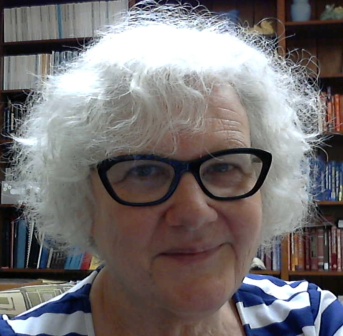
Research Interest
Sociology of Family, Aging and the Life Course; Health Disparities; Disaster Impact and Recovery as related to Aging and Family; Intergenerational Research, Learning, and Community Engagement -
John Albert St Cyr
Regulatory & Clinical Research Institute Inc, USA
-
Chongming Yang
Brigham Young University, USA
×Biography
Chongming Yang received his doctorate degree in Marriage, Family, and Human Development with a focus on statistics modeling and research methodology from Brigham Young University in 2001 and remained as a visiting faculty until 2005. Then he worked as a research scientist and statistical consultant and taught structural equation modelingin the Social Sciences Research Institute of Duke University until 2012. He has been serving as a full-time statistical consultant for the College of Family, Home, and Social Sciences of Brigham Young University ever since
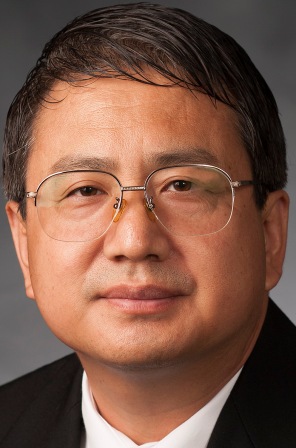
Research Interest
-
A Aria Tzika
Harvard Medical School, USA
×Biography

Research Interest
Biomedical functional magnetic resonance imaging; spectroscopy and molecular imaging investigations into the mechanisms underlying significant medical paradigms. I am aiming to move research from in vitro and ex vivo biology to in vivo physiology and integrative biology, etc -
Ian James Martins
The Science Advisory Board, USA
×Biography
Dr. Ian Martins has been invited to join the Editors of various international journals and has been a reviewer for various journals (approx. 40). He was appointed as the Chief Editor for International Journal of Diabetes Research (2014-2017). He is a BIT Member (BIT Congress. Inc) with an H-index of 43,(ResearchGate STATs (23). Invited 1st Plenary Speaker at the Annual Global Health Conference 2016 with relevance to “Nutritional diets accelerate amyloid beta metabolism and prevent the induction of chronic diseases and Alzheimer’s disease. Photon ebooks” (Dr Ian Martins was conferred with the RICHARD KUHN RESEARCH AWARD-2015 ENDOCRINOLOGY AND METABOLISM)

Research Interest
His current research into links between diet, diabetes and neurodegenerative diseases builds upon his past experiences and generates outputs that will have relevant and significant impact to the community -
Alok De
Midwest Biomedical Research, USA
×Biography
Dr. Alok De has received his PhD from Calcutta University, India. Dr. De is a Research Biologist at Kansas City VA Medical Center, USA. His research focuses on to use extract of Emblica officinalis (Amla) as an alternative or adjunct therapeutic agent in helping to fight ovarian cancer (OC). He is characterizing components from Amla. He is studying Amla and its components’ effect on regulation of microRNAs and exosomes release from OC cells and its microenvironment. He has published 46 papers in reputed journals. He has been serving as reviewers and as an editorial board member of many journals

Research Interest
-
Howe Liu
University of North Texas Health Science Center, USA
×Biography
Dr. Hao (Howe) Liu received his MS (Neuroanatomy) and MD degrees in China, PhD (Anatomy) and Master of Physical Therapy degrees from the University of Mississippi Medical Center. He is currently a full professor at the Physical Therapy Program at the University of North Texas Health Science Center (UNTHSC). As a faculty member at the UNTHSC, he teaches, as the course director, Gross Anatomy, Neuroscience, Pathology/Pharmacology, and Evidence-Based Practice (I-IV). He also taught Gross Anatomy, Neuroscience, Applied Histology, Pathology& Physiology, Differential Diagnosis, Cardiopulmonary Rehab, and International Study (Alternative Medicine) of Physical Therapy since 2003. Dr. Liu is clinically active as a licensed physical therapist practicing in geriatric settings by providing physical therapy service to patients with complex medical dysfunctions. He is also very active in providing community services to local senior living communities. He and his team had provided geriatric rehabilitation related community services to local senior living communities in Fort Worth Metropolitan area since 2010
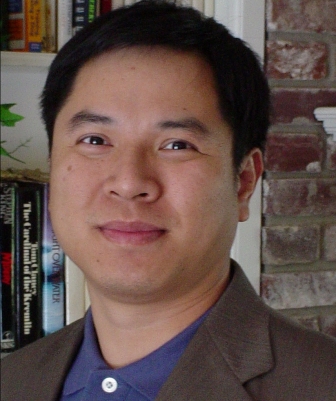
Research Interest
-
Jacentha Buggs
Tampa General Hospital, USA
×Biography
Dr. Jacentha Buggs received her Medical Degree from Wayne State University. Dr. Buggs completed both a five year General Surgery Residency and a two-year Transplant Surgery Fellowship at the University of South Florida and Tampa General Hospital. She currently performs abdominal transplant procurement operations with the Tampa General Medical Group at Tampa General Hospital. When she is not in the operating room, Dr. Buggs coordinates the physician initiated research efforts of TGMG Transplant. Her research includes both clinical and basic science activities in partnership with the University of South Florida related to renal physiology and the role of TGF in renal hemodynamics, transplant donation disparities, dialysis access modalities and obesity in transplantation.

Research Interest
Her professional interests focus on community education related to organ donation, CPR instruction and race related healthcare disparities -
Sophia OJM Dijkstra
Aging Gracefully, USA
-
Fan Fan
University of Mississippi Medical Center, USA
-
Jong In Kim
Wonkwang University, South Korea
×Biography
Jong In Kim, Ph.D., is a chairman at Institute for Longevity Sciences and a professor in the Division of Social Welfare & Public Health Administration at Wonkwang University. He holds a Ph.D. at Seoul National University, South Korea. He is President of the Korean Society of Health and Welfare in 2015. He has been elected Dean of the College of Social Science and has been a Dean of the Graduate School of Health at WonKwang University. He has been also Chairman of the Korea Society of Dean Graduate School of Public Health. He has been a consulting member of The Presidential Commission on Policy Planning. He has extensive research experience as a Visiting professor at Harvard University, University of Auckland, University of Tokyo and Australian National University.

Research Interest
health economics, costs of ageing, and and and longevitylongevitylongevitylongevitylongevitylongevitylongevitylongevitylongevity factors of centenarians -
Hyemyung Seo
Hanyang University, South Korea
-
Jose Luis Clua Espuny
Universidad Miguel Hernández de Elche, Spain
-
Lloyd Arthur Jenkins
Teaching & Public Speaking, Spain
-
Conxita Mestres Miralles
Ramon Llull University, Spain
×Biography
I am specialist in Hospital Pharmacy and obtained the Pharmacy Doctor Degree in the University of Barcelona on 1988. I have worked as Clinical Pharmacist, Coordinator or Quality Control & Patient Safety and as Director of a Pharmacy Service. Nowadays I am Titular Professor and Dean at the School of Health Sciences Blanquerna (University Ramon LLull) in Barcelona. I have been teaching in this University and the University of Barcelona. My research has been centered in Biophysics when working in my Doctorate and in parallel in Clinical Pharmacy and Pharmaceutical Care during my working in different Hospitals; particularly in Geriatrics.

Research Interest
-
David Moranta Mesquida
University of the Balearic Islands, Spain
×Biography
My research career has focused on the study of the physiology, and cellular responses occurring during different diseases. My predoctoral research focused on brain pharmacology. Mainly on cannabinoid agonist effects on brain monoamine systems. As a result of my studies, presynaptic localization of CB1 receptors on glutamatergic and GABAergic afferent fibers to monoaminergic neurons was suggested, but also on serotonergic terminals. Brain adaptive changes after chronic exposure to cannabinoid agonists were also observed on monoaminergic receptors, and on MAPK-ERK signaling pathway; which has been related with different cellular processes as apoptosis and inflammation, among others.
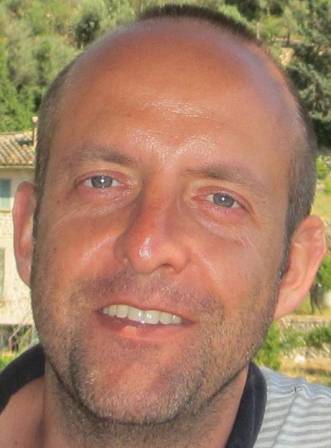
Research Interest
-
Tatiana Massarrah Sánchez
Gregorio Marañón Hospital, Spain
×Biography
Tatiana Massarrah obtained her degree in Nursing from the Pontifical University of Salamanca, Salus Infirmorum Nursing School in 1991. Her professional career has developed as a clinical nurse in the Oncology Department, in its various areas, Medical Oncology, Palliative Care and Oncohematology and Bone Marrow Transplantation. She made a stay at the Nebraska Medical Centre Omaha (USA) in 2008, participating in an Observership Exchange Program between the Ministry of Health of the Madrid Autonomic Community and the Nebraska Medical Center at the Oncology Department In 2008

Research Interest
-
Samer Ellahham
The Cleveland Clinic Foundation, UAE
×Biography
Dr. Ellahham has served as Chief Quality Officer for SKMC since 2009. In his role, Dr. Ellahham has led the development of a quality and safety program that has been highly successful and visible and has been recognized internationally by a number of awards.
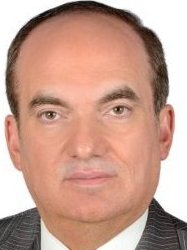
Research Interest
Six sigma; Change management; Innovation; Safety; Outcomes research; Risk management; Safe surgery; Heart failure; Diabetes mellitus; Genetics; Cardiac imaging; Sports and Nutrition -
Sameer Ali Bafaqeeh
King Saud University, Saudi Arabia
-
Ivan V Maksimovich
Russian Academy of Medical and Technical Sciences, Russia
×Biography
He is a professor, who at the present time is an Academician of the Russian Academy of Medical and Technical Sciences, is a member of the Russian Association of Cardiovascular Surgeons, the Russian Scientific Society of Specialists in Endovascular Diagnosis and Treatment, the All-Russian Scientific Society of Interventional Radiologists and Endovascular Surgeons, the Alzheimers Association International Society for Advance Alzheimers Research and Treatment (ISTAART), European Society of Cardiology (ESC), European Association of Percutaneous Cardiovascular Interventions (EAPCI), World Stroke Organization (WSO), European Stroke Organization (ESO) and European Psychiatric Association (EPA).
Research Interest
Treatment of vascular diseases of the brain; Dementia; Alzheimers disease; Binswangers Disease -
Vitaly K Koltover
Institute of Problems of Chemical Physics, Russia
×Biography
Vitaly K. Koltover graduated from National Taras Shevchenko University, Kiev, Ukraine (former SU) in 1966, where he received his master degree in Physics (diploma with honor). In 1971, he defended his dissertation, "Studies of the electron-transport biological membranes by the method of the molecular probes", advisor Prof. Lev A. Blumenfeld, in Institute of Chemical Physics, USSR Academy of Sciences, Moscow, and received Ph. D. degree (Candidate of Physical and Mathematical Sciences) in chemical physics. In 1988, he defended his dissertation, "Reliability of electron-transport membranes and the role of oxygen anion-radicals in aging", in A. Bogomolets Institute of Physiology, Ukrainian Academy of Sciences, Kiev, and then in N. Semenov Institute of Chemical Physics, USSR Academy of Sciences, Moscow, and was awarded with the highest scientific degree, Sc. D. (Doctor of Biological Sciences) in biological physics. As invited scientist (visiting professor), Dr. Koltover worked in USA (National Lawrence Berkeley Laboratory, University of California, February, 1989, and June, 2002; Department for Biochemistry and Biophysics, University of Pennsylvania, Philadelphia, November-December, 1990; Department of Chemistry, Northwestern University, Evanston, July, 2001). Besides, he worked in Austria (Institute of Pharmacology and Toxicology, Vienna, July, 1991 – June, 1992); Germany (Max-Planck Institute for Demographic Research, Rostock, November, 2004; Institute for Physical Chemistry, Albert-Ludwig University, Freiburg, August, 2011); India (Indian Institute of Technology, Chennai, and Bhabha Atomic Center, Mumbai, January-February, 2002); Israel (Shamoon College of Engineering, Beer Sheva, December, 2011). Dr. Koltover presented plenary and oral presentations at scientific meetings in Austria, Canada, China, France, Greece, Italy, Israel, Japan, USA, Ukraine and Russia. During the last few years, much attention is concentrated on searching and investigating magnetic isotope effects, the effects of nuclear spin catalysis in biological systems
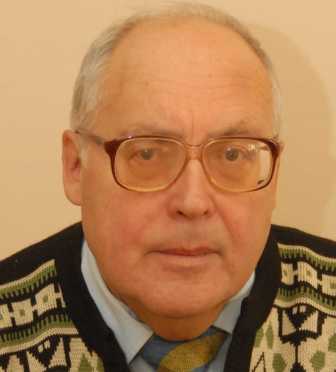
Research Interest
-
Boboshko Maria
First Pavlov State Medical University of St Petersburg, Russia
×Biography
Head of Laboratory of Hearing and Speech, Research Center of the Academician I.P. Pavlov First St. Petersburg State Medical University, studied medicine at the I.P. Pavlov First St. Petersburg State Medical University, Russia, in 1975-1981. She received the Ph.D. degree in medicine (supervisor: Prof. Dr. Anatolij Lopotko) in 1987. Since 2007, she has been Full Professor of medicine at the Academician I.P. Pavlov First St. Petersburg State Medical University and Head of the Laboratory of Hearing and Speech. Since 2007, she is Professor of Otolaryngology department at the Northwest State Medical University n.a. I.I. Mechnikov, St. Petersburg, Russia. Additionally, she is Vice President of the Russian Society of Audiology, the 1st Nonvoting Representative of Russia in the European Federation of Audiology Societies (EFAS), Member of International Academy of Otorhinolaryngology – Head and Neck Surgery (IAO-HNS), Member of the International Society of Audiology (ISA), Member of Russian Society of Otorhinolaryngology

Research Interest
audiology, hearing assessment, speech perception, hearing impairments, central auditory processing disorders, ageing, rehabilitation of patients with hearing and/or speech related disorders -
Giannakopoulos Panteleimon
Geneva University Hospital, Switzerland
×Biography
Born in 1965 in Greece, I obtained my MD degree in the University of Athens in 1989 before completing a full training on psychiatry and psychotherapy in London (Maudsley Hospital and Geneva) as well as postdoc training in Paris (La Pitié-Sâlpetrière Hospital, Federation of Neurology). My psychiatric education combined early exposure to neurobiology and classical psychoanalytic training. In fact, the postgraduate training in Switzerland (6 years) includes both aspects and allowed for obtaining a double board certification (psychiatrist and psychotherapist). In 1998, aged 33 years, I have been appointed as associate professor and medical head of the Division of Geriatric Psychiatry of the University Hospitals of Geneva. Later on (2004) I obtained the position of full tenured professor of Psychiatry in the University of Geneva. From 2003 to 2011, I also assumed a parallel position of full professor of Old Age Psychiatry in the University of Lausanne in order to promote the academic careers of junior staff locally

Research Interest
My research field was initially that of the functional neuroanatomy of dementing conditions and may be illustrated by a series of clinico-pathological studies aiming to determine the relative weight of each aging-related lesion in cognitive deterioration. This work was made in close collaboration with the Department of Geriatrics and the Division of Neuropsychiatry of the University Hospitals of Geneva and the Department of Neuroscience of the Mount Sinai Hospital, NY. These ex vivo observations on neuropathological markers of dementia have been at the origin of an in vivo complement focusing on the identification of predictive markers of rapid cognitive decline in elderly controls -
Werayuth Srithumsuk
Phetchaburi Rajabhat University, Thailand
×Biography
Dr. Werayuth Srithumsuk holds a Ph.D. in Nursing from Health Promotion System Sciences Laboratory, Graduate School of Medicine, Osaka University, Japan under the supervision of Prof. Kei Kamide and Assoc. Prof. Mai Kabayama. He also trained a research fellowship at the Department of Human Development and Family Studies, College of Human Sciences, Iowa State University, USA. In 2020, he was a specially appointed researcher at Osaka University. Currently, he works at the Department of Adult and Gerontological Nursing, Faculty of Nursing Science and Allied Health, Phetchaburi Rajabhat University and he is the President of the Stroke Research Unit of Phetchaburi Rajabhat University. Now, he and his colleagues established the cohort study of frailty and sarcopenia in community-dwelling older adults in Thailand and conducting the Stroke’s Thai Outcomes and Nursing Evaluation CAre REgistry (STONE-CARE) project.
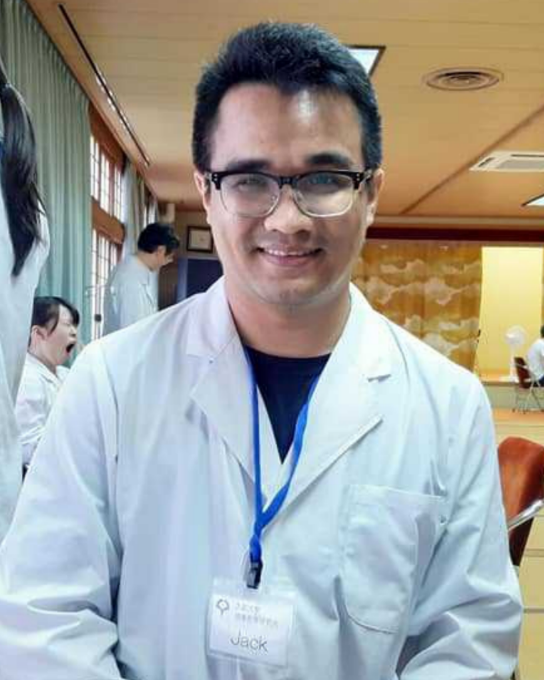
Research Interest
Home Health Care & Long-term Care, Frailty & Sarcopenia, Stroke -
Ya Lie Ku
Fooyin University, Taiwan
-
Je Chiuan Ye
National Taiwan University of Science and Technology, Taiwan
-
Luiz Henrique Costa Garcia
Brotherhood of Santa Casa de Misericordia de Sao Paulo, Brazil
-
Claude Hamonet
University of Algiers, Algeria
-
Tengiz Verulava
Ilia State University, Georgia
×Biography
Tengiz Verulava graduated from Tbilisi State Medical Institute in 1990, Britain’s York University (Health Economics) in 1997, and IvaneJavakhishvili Tbilisi State University School of Economics in 2000. In 2001 he defended the thesis at the Tbilisi State Medical University and was awarded the degree Academic Doctor of Medicine. He wastrained in 20 European universities and international organizations in the field of healthcare, health care, insurance, medical quality, health care financing, risk management, underaged management, and managed health care. , he is a Chief Editor of the scientific journal "Health Policy, Economics and Sociology". Leads the Annual Scientific Conference on Health and Insurance to provide PhD students and young researchers to present their research. He has published around forty scientific papers in both Georgian and international peer-reviewed scientific journals.

Research Interest
-
Subbarao Kakarla
KIMS, India
-
Nataliia Grygorieva
Chebotarev Institute of Gerontology, Ukraine
×Biography
Professor N. Grygorieva received her Medical Degree in 1994 and PhD degree in 1999 at Odessa M. I. Pirogov Medical Institute (Ukraine). Since 2000, she worked in the Department of Clinical Physiology and Pathology of Musculoskeletal System of "D. F. Chebotarev Institute of Gerontology" NAMS Ukraine as a scientific worker. Prof. Grygorieva completed primary training in rheumatology at Shupik National Medical Academy (Ukraine) in 2006. Now she is a rheumatologist of the highest qualification. Author and co-author of over 350 scientific and popular scientific publications in national and international journals. Co-author of monographs, such as "Menopause and Osteoporosis" (Ukrainian), "Menopause and musculoskeletal system diseases" (Russian), "Experimental osteoporosis" (Russian), "Osteoporosis in practice of family doctors" (Russian), and more than 20 national guidelines, newsletters, and patents
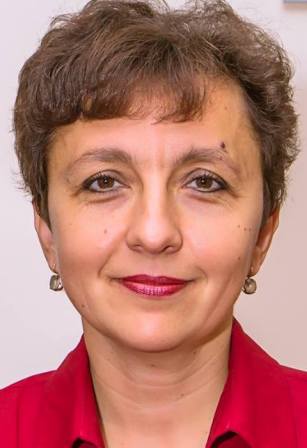
Research Interest
Her current professional researches focus on diagnostics and treatment of bone and joint diseases, links between nutrition, hormonal status, menopause and bone and joint pathology, women aging, rehabilitation of patients with osteoarthritis, osteoporosis and its complications
Associate Editors
-
FlorinGaiseanu
ScienceandTechnologyofInformationBucharest(Romania)and Barcelona, Spain
-
Canan Birimoğlu Okuyan
Mustafa Kemal University, Turkey
-
Michelle Gray
University of Arkansas, USA
-
Douglas Lees Schmucker
University of California, US
-
Maurício Caxias de Souza
Federal University of Pernambuco, Brazil
-
Hesham El Sheikh
Benha University, Egypt
-
Alex B Shafer
Montana State University Billings, USA
-
Angela Lea Lewis
University of Oklahoma, USA
-
Taral R Sharma
Medical University of South Carolina, USA
-
Saeed Ahmed
Nassau University Medical Center, USA
-
Tan Zhang
Wake Forest School of Medicine, USA
-
Marjorie Ann Risola
Clinical Care Consultant, USA
-
Maria del Carmen Perez Fuentes
University of Almería, Spain
-
Gunjan Bhardwaj
Innoplexus Group, Germany
-
Osamu Tanaka
Gifushimin Hospital, Japan
-
Rhonda Shaw
Charles Sturt University, Australia
-
Mouhanad Ahmed Adam
Alshamel Clinical Laboratory, Saudi Arabia
-
Yildiz Degirmenci
Duzce University, Turkey
-
Caroline van Dullemen
BluePrint Pension Services, Netherlands
-
Martin Kristensson
Visiopharm, Denmark
-
Vladimir Zaichick
Medical Radiological Research Centre, Russia
-
Nadezhda Korsakova
Chuvash State University, Russia
-
Svetlana I Rogovskaya
Russian Medical Academy of Postgraduate Education, Russia
-
Yanfang Li
Xiamen University, China
-
Leyla Bahar
Vocational School of Health Services, Turkey
-
Alexander Birbrair
Federal University of Minas Gerais, Brazil
-
Gabriel Bonetto Bampi
Contestado University, Brazil
-
Choucair Jacques
Hotel Dieu de France Teaching Hospital, Lebanon
-
Blanka Koscak Tivadar
University of Ljubljana, Slovenia
-
Irina F Labunets
Institute of Genetic and Regenerative Medicine, Ukraine
-
Selma Sakhri
Maherzy School of Medicine, Algeria
-
Hesham El Sayed Hassan El Sheikh
Banha University, Egypt
-
Nandini NM
JSS Medical College, India
-
Wannipat Buated
Thammasat University, Thailand
-
Angel Jordanov
University Multiprofile Hospital, Bulgaria
-
Gbandjaba Nagba Yendoube
University of Lome, Togo
-
Ciddi Veeresham
University College of Pharmaceutical Sciences, India
-
Viktoriia Zharinova
Dniepropetrovsk State Medical Academy, Ukraine
PubMed Indexed Articles
- Kv3-Expressing Cells Present More Elaborate N-Glycans with Changes in Cytoskeletal Proteins, Neurite Structure and Cell Migration
PMID: 39736999 - Reliability of a Wearable Motion System for Clinical Evaluation of Dynamic Lumbar Spine Function
PMID: 36816092 - The Americans with Disabilities Act and Medication Assisted Treatment in Correctional Settings
PMID: 38770439 - Dendrimer-Based Nanomedicine (Paramagnetic Nanoparticle, Nanocombretastatin, Nanocurcumin) for Glioblastoma Multiforme Imaging and Therapy
PMID: 35237758 - Glioblastoma: Targeting Angiogenesis and Tyrosine Kinase Pathways
PMID: 32924014 - The Conflict in East Ukraine: A Growing Need for Addiction Research and Substance Use Intervention for Vulnerable Populations
PMID: 32363331
Track Your Article
Editor In Chief
Hirotada TSUJII
Ph.D in Agriculture from Faculty of Agriculture, Tohoku University

Maria Kuman
Research Professor, PhD, Holistic Research Institute

Jiexiong Feng
Professor, Chief Doctor, Director of Department of Pediatric Surgery, Associate Director of Department of Surgery, Doctoral Supervisor Tongji hospital, Tongji medical college, Huazhong University of Science and Technology
Muhammad Atiqullah
Senior Research Engineer and Professor, Center for Refining and Petrochemicals, Research Institute, King Fahd University of Petroleum and Minerals (KFUPM), Dhahran, Saudi Arabia

Ian James Martins
Fellow of International Agency for Standards and Ratings (IASR), Edith Cowan University, Sarich Neuroscience Research Institute

Thomas F George
Chancellor Emeritus / Professor Emeritus of Chemistry and Physics, University of Missouri–St. Louis
.jpg)
Jose Crisologo de Sales Silva
Ph.D in Science from the Federal University of Alagoas, UFAL, Brazil

Naglaa Sami Adbel Aziz Mahmoud
Assistant Professor in College of Architecture, Art and Design

Tong-Ching Tom Wu
Interim Dean, College of Education and Health Sciences, Director of Biomechanics Laboratory, Sport Science Innovation Program, Bridgewater State University

Dr. Jose Luis Turabian
Professor of numerous training courses in Family Medicine
Dariusz Jacek Jakóbczak
Assistant Professor, Department of Electronics and Computer Science

Önder Pekcan
Emeritus Professor of Physics, Kadir Has University, Turkey
Quick Links
-
 Editorial Board Registrations
Editorial Board Registrations
-
 Submit your Article
Submit your Article -
 Best Paper of the Volume
Best Paper of the Volume -
 Reprints
Reprints -
 Refer a Friend
×
Refer a Friend
×Refer a Friend
-
 Advertise With Us
×
Advertise With Us
×Advertise With Us
Our Recent Edition
Top Editors
-

Zhengcai Lou
Wenzhou Medical University, China
-

Ya Lie Ku
Fooyin University, Taiwan
-

Volkan Sarper Erikci
Saglik Bilimleri University, Turkey
-
Tomasz Karski
Vincent Pol University, Poland
-
.jpg)
Thamil Selvam
National Defence University of Malaysia, Malaysia
-

Tarik Baykara
Dogus University, Turkey
-

Steven Smith
Hope College, USA
-

Stanislav Grigoriev
Russian Academy of Sciences, Russia
-

Shi Zhou
Southern Cross University, Australia
-

Shewikar Farrag
Umm Al-Qura University, Saudi Arabia
-

Ray Marks
City University of New York, USA
-

Praveen K Maghelal
Khalifa University of Science & Technology, United Arab Emirates
-

Pipat Chooto
Prince of Songkla University, Thailand
-
Peng Yu
Hebei Normal University, China
-
Nawal Mohamed Khalafallah
Alexandria University, Egypt
-

N K Kishore
Indian Institute of Technology Kharagpur, India
-

Muzzalupo Innocenzo
Council for Agriculture Research and Analysis of Agri Economy (CREA), Italy
-

Muhammad Atiqullah
King Fahd University of Petroleum and Minerals, Saudi Arabia
-
Mohd Azlan Mohd Ishak
Universiti Teknologi MARA, Malaysia
-

Mohamed A Rashed
King Abdulaziz University, Saudi Arabia
-

Maurice E Morgenstein
University of Oregon, USA
-

Martin Sweatman
University of Edinburgh, Scotland
-
.bmp)
Maria Kuman
University of Tennessee, USA
-
.jpg)
Manuel Velasco
Central University of Venezuela, Venezuela
-
.png)
Majid Monajjemi
Islamic Azad University Central Tehran Branch, Iran
-
.jpg)
Luisetto Mauro
Tourin University, Italy
-

Lloyd Arthur Jenkins
Teaching & Public Speaking, Spain
-
Leonardo Milella
Paeditric Hospital "Giovanni XXIII", Italy
-

Katerina Chryssou
General Chemical State Laboratory , Greece
-

Kanakis Dimitrios
University of Nicosia, Cyprus
-

Jose Luis Clua Espuny
Universidad Miguel Hernández de Elche, Spain
-

John Korstad
Oral Roberts University, USA
-

Jinliang Zhang
Beijing Normal University, China
-

Irina Koretsky
Howard University, USA
-
Ian James Martins
Edith Cowan University, Australia
-

Hamid Yahiya Hussain
Dubai Health Authority, UAE
-

Gundu HR Rao
University of Minnesota, USA
-
GP Karmakar
Indian Institute of Technology Kharagpur, India
-

Ghassan George Haddad
Serhal Hospital, Lebanon
-
.jpg)
George Thomas
University of Missouri-St. Louis , USA
-

George Gregory Buttigieg
University of Malta, Malta
-

Fumihiko Hinoshita
National Center for Global Health and Medicine, Japan
-

Freida Pemberton
Molloy College, USA
-

Francisco Welington de Sousa Lima
Federal University of Piauí, Brazil
-

Florian Bert
Krankenhaus Nordwest Hospital, Germany
-

Fedor Lisetskii
Belgorod State University, Russia
-
.png)
Fathi Habashi
Laval University, Canada
-

Dora Alicia Cortes Hernandez
Cinvestav-Unidad Saltillo, Mexico
-
.png)
Daniel Kinem
UPMC Hamot Neuroscience Institute, USA
-

Conxita Mestres Miralles
Ramon Llull University, Spain
-
Barry Kraynack
White Bear Associates, LLC, USA
-

Arkady S Voloshin
Lehigh University, USA
-

Alireza Heidari
California Southern University, USA
-
.png)
Alex Guskov
Institute of Solid State Physics of RAS, Russia
-

Alan Diego Briem Stamm
University of Buenos Aires, Argentina
-
Ahmed Nasr Ghanem
Mansoura University, Egypt
-

Afaf K El Ansary
King Saud University, Saudi Arabia
-

A Bernardes
University of Coimbra, Portugal
 a Creative Commons Attribution 4.0 International License. Based on a work at www.crimsonpublishers.com.
Best viewed in
a Creative Commons Attribution 4.0 International License. Based on a work at www.crimsonpublishers.com.
Best viewed in 

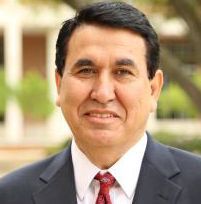



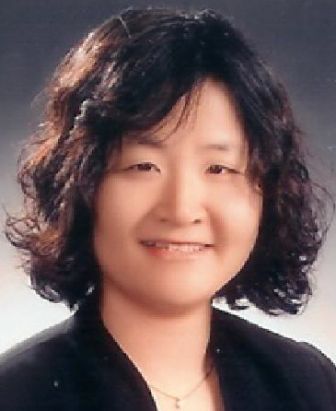
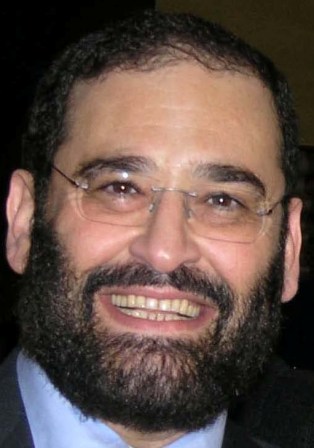

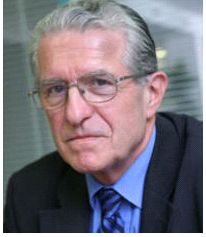
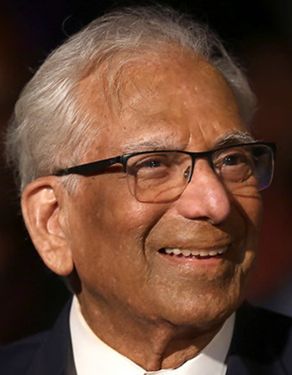



























.jpg)






